2019-2020 SNSP Pre-doctoral Fellows
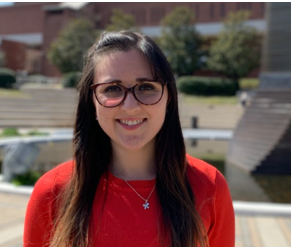 Camila Apablaza
Camila Apablaza
Ph.D. Student
Public Policy
Earlier in her career, Camila realized her love for interdisciplinary work. At that time, she decided to complement her previous education in Industrial Engineering and Financial Management with a Ph.D. in Public Policy. Currently, she works at the intersection of engineering and public policy through study of the decarbonization of transportation and the role of firms, government, and civil society in achieving sustainability goals. At the same time, she enjoys contributing to the community by serving as president of the Fulbright Student Association at Georgia Tech and as a leadership coach for the LEAD program at Georgia Tech. As a Sam Nunn Fellow, Camila expects to understand better how issues of national security interact with climate change and environmental goals.
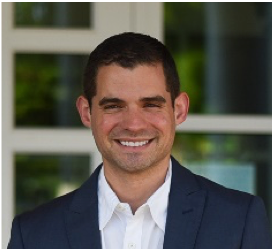 Ricardo J. Bonilla-Alicea
Ricardo J. Bonilla-Alicea
Ph.D. Student
Mechanical Engineering
Mr. Ricardo Bonilla-Alicea is a 4th year Ph.D. student in the George W. Woodruff School of Mechanical Engineering at Georgia Tech. Ricardo is a member of the Engineering Design and Research Laboratory, where he researches decision support method to better understand the unintended social impacts of design decisions made in the product development process. As a Sam Nunn Fellow, Ricardo expects to gain a better understanding on public policy development for future technology initiatives. Ricardo believes that the technical decisions made by engineers and scientists in general are essentially social decisions and that there is an inherent responsibility from scientists to evaluate their research from a social dimension.
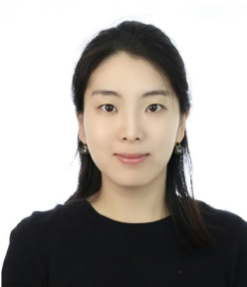 Suon Choi
Suon Choi
Ph.D. Student
International Affairs
Ms. Suon Choi is a 3rd year Ph.D. student in the Sam Nunn School of International Affairs and an associate research fellow at the Korea Institute for Defense Analyses (KIDA). She earned a M.A. in Political Science from Yale University and a B.A. in Economics and International Relations from Seoul National University, summa cum laude. Suon’s academic research focuses on nuclear proliferation, deterrence, extended deterrence with a regional focus in East Asia: US-North Korea relations, US-ROK alliance, and US-ROK-Japan relations. Her current project analyzes the rhetoric of North Korea and its impact on U.S. extended deterrence. As a Sam Nunn Fellow, Suon hopes to acquire insight into how science and technology influence nuclear issues in a broader context.
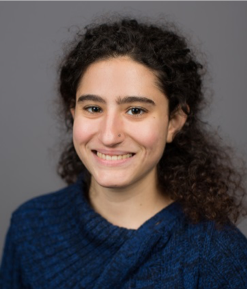 Rebecca Glaser
Rebecca Glaser
Ph.D. Student
Materials Science and Engineering
Ms. Rebecca Glaser is a 4th year Ph.D. student in the School of Materials Science and Engineering. She graduated with a B.S. also in materials science and engineering from Northwestern University. Rebecca’s research focuses on the design and testing of electrolytes for long-lasting lithium-sulfur batteries. She has also completed a minor in public policy with a focus on energy while at Georgia Tech and established the university’s chapter of the Materials Research Society. As a Sam Nunn Fellow, Rebecca hopes to learn how to look at energy policy through the lens of security and more deeply understand the impacts of renewable energy, electrification, and smart grid infrastructure on security. She also hopes to explore how to use security policy to advance the goals of energy and environmental policy.
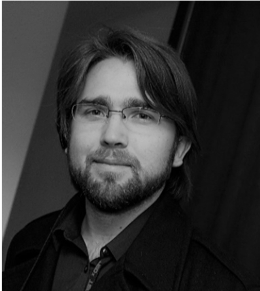 Karl Grindal
Karl Grindal
Ph.D. Student
Public Policy
Mr. Karl Grindal is a 4th year Ph.D. student in the School of Public Policy where he works with the Internet Governance Project. Karl previously served as the Director of Research for Intelligent Cyber Research (ICR), where he developed the Geocyber Risk Index (GCRI), a comparative assessment of the cyber threats of operating a network in different countries in collaboration with the Eurasia Group. Before joining ICR, he provided strategic, policy, and research services as a Senior Analyst at Delta Risk LLC. From 2014-2017, Karl was the Executive Director of the Cyber Conflict Studies Association (CCSA), a non-profit dedicated to advancing a research agenda on cyber conflict. Karl completed a Master's of Public Policy with a concentration in Technology Policy from Georgetown University. He completed his undergraduate studies with a Bachelor's of Arts in Government and Certificate in International Relations from Wesleyan University. As a Sam Nunn Fellow, Karl hopes to advance his understanding of security studies, and research how military strategy and doctrine might evolve to better address cyber security challenges.
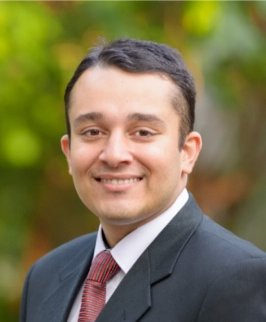 Saad Java
Saad Java
Ph.D./M.B.A. Student
Material Science and Engineering
Mr. Saad Javaid is a 4th year Dual Degree Ph.D.-M.B.A. candidate in School of Materials Science and Engineering. He graduated from the US Air Force Academy in Colorado Springs with a double major in Aeronautical and Systems Engineering alongside his Instructor Pilot wings with the Airmanship program. In his professional career, he has managed maintenance, logistics and operations of combat aircraft, conducted aircraft accident investigations and taught undergrad engineering courses. He is a graduate of the TI:GER entrepreneurship program at Scheller College of Business and a leadership coach with the LEAD program at Georgia Tech. Saad’s research focuses on studying crack propagation mechanisms in thin metal forms with applications in aerospace, automotive and electronics industries. As a Sam Nunn Fellow, he hopes to explore policy aspects of the developing world’s ambition of technological independence and the possible long-term effects that it has on international cooperation and regional dynamics.
 William Johnson
William Johnson
Ph.D. Student
Mechanical Engineering
Mr. William Johnson is a Ph.D. student in the George W. Woodruff School of Mechanical Engineering at Georgia Tech.He previously completed his M.S. in the same field at Brigham Young University. His current research focuses on applying elastic metamaterials to pulse shaping in high impact materials testing. Prior to starting college he lived in The Republic of Kiribati for 8 months, expected to be the first nation destroyed by climate change. Later, while a master’s student, he had the opportunity to work at Los Alamos National Laboratories developing a portable detector to be used by the IAEA in the enforcement of the Nuclear Non-Proliferation Treaty. These experiences helped to develop his interest in public policy and technology. As a Sam Nunn Fellow, he hopes to learn about climate change, the challenges it presents to maintaining national security, and how policy can be used to address these issues.
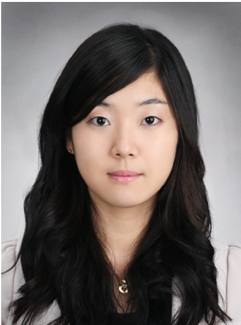 Eunji Emily Ki
Eunji Emily Ki
Ph.D. Student
Sam Nunn School of International Affairs
Ms. Eunji Emily Kim is a 3rd year Ph.D. student in the Sam Nunn School of International Affairs. Before Georgia Tech, she served as a researcher at the Korea Institute of Science and Technology Evaluation and Planning. Additionally, she served as a research fellow at the Nuclear Nonproliferation Education and Research Center at Korea Advanced Institute of Science and Technology. She earned her M.A. in international relations at Seoul National University and B.A. in political science and trade at SungKyunKwan University. Her research interests are in international security and methodologies, especially, on the issue of WMD nonproliferation. As a part of nuclear nonproliferation, she is currently analyzing U.S.-North Korean nuclear negotiations using text analysis methods. As a Sam Nunn Fellow, Emily is expecting to learn diverse perspectives on WMD issues, and also learn a variety of methodological approaches to social issues.
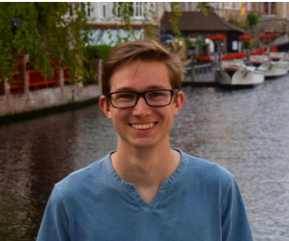 Matthew O'Shaughnessy
Matthew O'Shaughnessy
Ph.D. Student
Electrical & Computer Engineering
Mr. Matthew O’Shaughnessy is a 4th year Ph.D. student in the School of Electrical & Computer Engineering at Georgia Tech, where he earned the B.S. Electrical Engineering in 2016 and expects the M.S. Mathematics in 2019. Matthew’s research, which is supported by the National Defense Science and Engineering Graduate (NDSEG) fellowship, spans statistics, signal processing and machine learning. His current work focuses on the use of low-dimensional structure to detect causal relationships from observational data, particularly in time series and dynamical systems. Matthew has interned at Boeing Satellite Systems, Georgia Tech Research Institute, and MIT Lincoln Laboratory. As a Sam Nunn Fellow, Matthew is interested in studying the role of artificial intelligence and machine learning in society, policy, and national security, and in developing a deeper understanding of how scientists can contribute to policy-making.
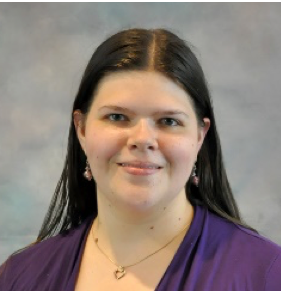 Elaine Rhoades
Elaine Rhoades
Ph.D. Student
Physics
Ms. Elaine Rhoades is a 5th year Ph.D. student in the School of Physics. Elaine graduated magna cum laude, earning a B.S. in Space Physics, with a minor in Spanish, from Embry-Riddle Aeronautical University. Her research focuses on the development of modifications to existing solid state semiconductor particle detectors, with the goals of increasing efficiency and lowering the energy threshold for neutron detection. Elaine has interned at the U.S. Department of Energy’s Sandia National Laboratories in Albuquerque, NM, modeling semiconductor devices and investigating the performance of other particle detector designs. As a Sam Nunn Fellow, Elaine hopes to investigate the relationships between international relations, U.S. policy, and leading technology developments, with a focus on how these topics impact nuclear non-proliferation.
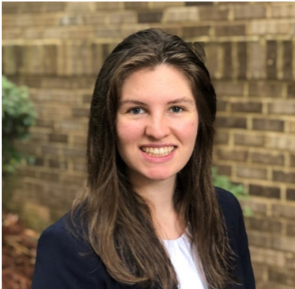 Jamie Wooding
Jamie Wooding
Ph.D. Student
Materials Science and Engineering
Ms. Jamie Wooding is a 3rd year Ph.D. student in the School of Materials Science and Engineering at Georgia Tech. She graduated summa cum laude with a B.S. in Materials Science and Engineering from Rutgers University. Jamie is a 2017 National Science Foundation (NSF) Graduate Research Fellowship Awardee. Her research includes developing sustainable polymer composites for structural applications, advancing thin film processing for the microelectronics industry, and studying crystallization kinetics in chemical vapor deposition. As a Sam Nunn Fellow, Jamie wants to explore the relationship between emerging technologies and energy policy, and how this affects the state of national security and international relations.
2018-2019 SNSP Mid-Career Fellows
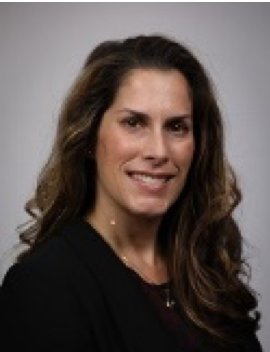 Courtney Crooks, Ph.D.
Courtney Crooks, Ph.D.
Principal Research Scientist
Georgia Tech Research Institute, Electronics Systems Laboratory
Dr. Courtney Crooks is a Principal Research Scientist at Georgia Tech Research Institute, an expert in human systems integration and behavioral science, a licensed psychologist, and a military veteran. She has accumulated over 17 years of applied research experience with GTRI and with the U.S. Navy as an Aerospace Experimental Psychologist. Her expertise is influential on various projects requiring her skills in contextual analysis, scenario development, evaluation, interviewing, and socio-psychological considerations. Dr. Crooks has served in numerous leadership, project director/principal investigator, professional mentor, and supervisory roles throughout her career, and is actively involved in her professional and civic communities. She completed a formal retraining program in clinical psychology with Fielding Graduate University; a doctoral internship and postdoctoral residency in health services psychology with Emory University School of Medicine; and a Georgia Tech Professional Education certificate in Cyber Security. Dr. Crooks is also an adjunct faculty member with Georgia Tech School of Psychology, and Walden University College of Social and Behavioral Sciences; and a candidate at the Emory University Psychoanalytic Institute. She is currently pursuing projects related to core issues within the intersection of cyber security, cyber psychology, and policy; such as digital culture dynamics, social computing, and information proliferation.
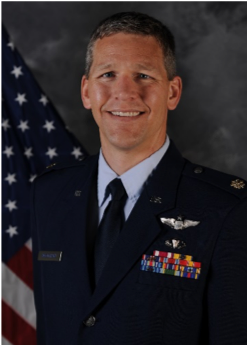 John P. Wagemann, Jr., Lt Col, US Air Force
John P. Wagemann, Jr., Lt Col, US Air Force
Military Fellow
Sam Nunn School of International Affairs
Lt Col John Wagemann, USAF, is a Fellow at the Georgia Institute of Technology, Sam Nunn School of International Affairs where he brings a unique 18-year military perspective to the study and discussion of international affairs. Upon completion of a B.S. in Aeronautical Engineering from the USAFA, Lt Col Wagemann began his AF career by attending pilot training at Laughlin AFB, TX. Finishing pilot training he was selected to fly the F-15C and was stationed at Langley AFB, VA. After his first assignment, he was selected to fly the F-22. Following that he became an instructor at the F-22 Formal Training Unit at Tyndall AFB, FL. From there Lt Col Wagemann was selected to attend F-22 Weapons School class and following that, he spent three years at Langley AFB as the squadron and wing weapons officer where he led the first ever overseas F-22 deployment in support of a theatre support package. Finishing that assignment, he attended ACSC at Maxwell AFB and then returned to fly F-22s at Nellis AFB. Following work running Exercise RED FLAG, he attended the Service Chief Fellowship Program at DARPA, the Defense Advanced Research Projects Agency. He most recently served as commander of the 57th Operations Support Squadron.
Director
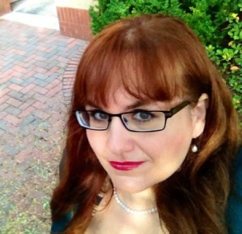 Margaret E. Kosal, Ph.D.
Margaret E. Kosal, Ph.D.
Associate Professor
Sam Nunn School of International Affairs
Working at the intersection of science and security, Prof. Kosal’s research explores the relationships among technology, strategy, and governance. Her work aims to understand and explain the role of technology and technological diffusion for national security at strategic and operational levels. The long-term goals of her work are to understand the underlying drivers of technological innovation and how technology affects national security and modern warfare.
Formally trained as an experimental scientist, Kosal earned a doctoral degree in Chemistry from the University of Illinois at Urbana-Champaign (UIUC) working on biomimetic and nano-structured materials. She is also the co-founder of a sensor company, where she led research on biological, chemical, and explosive detection and spearheaded efforts toward the real-world applications of the technology. During AY 2016-2017, she served as a Senior Adjunct Scholar to the Modern War Institute at West Point. Kosal previously has served as a Senior Advisor to the Chief of Staff of the U.S. Army, as Science and Technology Advisor within the Office of the Secretary of Defense (OSD), and as an Associate to the National Intelligence Council (NIC). Kosal is the author of Nanotechnology for Chemical and Biological Defense (Springer Academic Publishers, 2009), which explores scenarios and strategies regarding the benefits and potential proliferation threats of nanotechnology and other emerging sciences for national security, and editor/contributor to the volumes, Technology and the Intelligence Community: Challenges and Advances for the 21st Century and Development, Use, and Proliferation of Disruptive and Game-Changing Technologies in Modern Warfare. She is the recipient of multiple awards including the Office of the Secretary of Defense Award for Excellence and most recently honored as Georgia Power Professor of Excellence. In 2017, she was appointed Editor-in-Chief of the Cambridge University Press journal, Politics and the Life Sciences.
